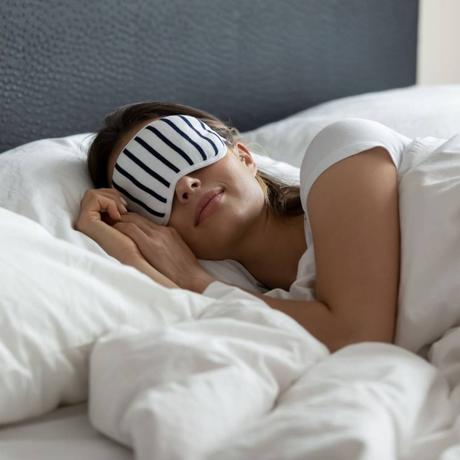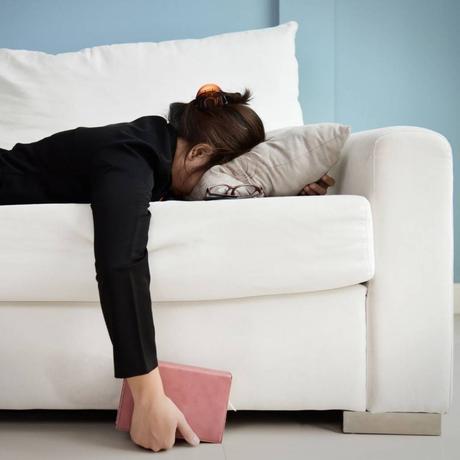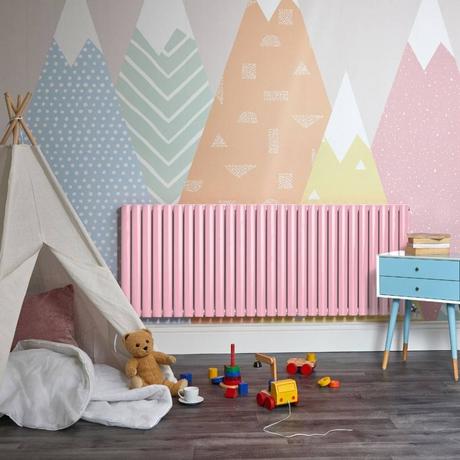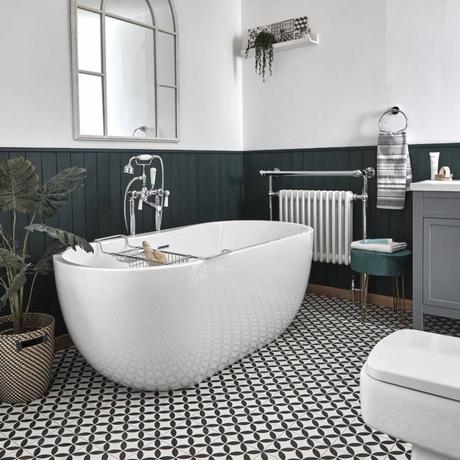Too hot in the summer, too cold in the winter. Getting the temperature just right for a good night’s sleep can be a nightmare.
We can all relate to the stress that a sleepless night can create, both during the 8 hours of tossing and turning, and trying to function properly the next day.
So, how do we maintain a comfortable climate in our sleep environment to ensure it is just right all year round? And, is ‘just right’ the same for everyone?

Why do we need sleep?
A solid sleep routine has countless health and well-being benefits. That’s why it is so important for both growing young people and busy adults to put care and attention into creating a successful sleep space.
Good sleep benefits
- Recharge the mind and body
- Improve focus and productivity
- Boost immune system
- Improve memory
- Reduce stress and lift mood
While good sleep can provide plenty of perks, poor sleep can cause serious health problems which could negatively affect quality of life.
Poor sleep problems
- Potential heart issues
- Increase weight gain
- Cause depression and anxiety
- Increase blood pressure
- Brain fog and fatigue

Our sleep survey says…
The temperature of your environment can significantly affect the quality of your sleep. With that in mind, we wanted to uncover what temperature people prefer when preparing for the perfect night’s sleep.
We asked our Instagram followers to share some of their favorite sleep situations to see if us Brits are cosy or cool sleepers.
It turns out, most of us prefer to create a cosy space to snuggle up with 72% choosing a warm bedroom over a cold one and 64% opting for heavy bedding over cool sheets.

This continues with our choice of nightwear with 60% wearing full pajamas over a light set. Bed socks are one step too far though with 79% sleeping barefoot during night.
According to sleep experts at Silentnight, pajamas also help us to mentally unwind “When you put your pajamas on, your brain starts to get into a bedtime frame of mind which induces tiredness. You can now get into your bed and continue to relax.”
However, when it comes to controlling the room temperature, 57% would prefer to cool down by using a fan over warming up with an electric heated blanket.
But, an uncomfortable bedroom temperature isn’t only unpleasant physically. From a recent BestHeating survey, we discovered that 3.6% of all bedroom bickers are related to leaving the heating on all night. Another 3% are related to couples complaining about their partner sweating during the night.
So, the battle for a comfortable bedroom temperature can also put stress on our personal relationships too!

What is the perfect sleep temperature?
According to the Sleep Foundation ‘most doctors recommend keeping the thermostat set between 60 to 67 degrees Fahrenheit (15.6 to 19.4 degrees Celsius) for the most comfortable sleep.’
This means that the average temperature for the ideal sleep for an adult is approximately 65 degrees Fahrenheit (18.3 degrees Celsius).
What about infants?
The bedtime story is slightly different when it comes to our little ones. Since their bodies are still developing and sensitive to temperature changes, it is recommended that their bedrooms are kept one or two degrees warmer during the night, up to 69 degrees Fahrenheit (20.5 degrees Celsius)
However, overheating can be incredibly dangerous and could increase the risk of sudden infant death syndrome. In order to keep infants safe during sleep, it is recommended to keep an eye on their body temperature by touching their stomach and avoiding multiple heavy layers and blankets.

How the body prepares for sleep
As nighttime approaches, our bodies have a clever way of getting in the zone and preparing to get some shut-eye. How it does this is all to do with light.
Light regulates your circadian rhythm, aka your sleep/wake cycle. When daylight fades, your body lowers your rate of metabolic heat production.
This causes your body temperature to gradually decrease by 1 to 2 degrees a couple of hours before you are ready to sleep and while you are sleeping.
Then in the morning as your body prepares to wake, your temperature will naturally return to the normal level. This helps your body feel rested and refreshed. After enough sleep that is!
Tips for creating a comfortable temperature
Whether you prefer sleeping in a warm room or a slightly cooler one, here are a couple of ways to regulate the temperature and keep you comfortable throughout the night.
- Install an electric radiator
Electric radiators work independently from your central heating system. They can also be operated via WiFi or Bluetooth. This means that you have greater control over your heating, allowing you to create the ideal bedroom temperature whatever time of year.
- Swap bedding seasonally
Opt for a lower tog duvet in the spring and summer to keep you cool in the warmer weather. As autumn and winter arrive, use a high tog duvet. If you get too cold, or the thick duvet makes you too warm, you can always adjust the temperature with layers and blankets.
- Close curtains or blinds
Keeping the windows covered by closing the curtains or blinds in the daytime will help to block out the heat on a warm day and keep the bedroom temperature at a comfortable level.
- Try a humidifier
Humidifiers are a great way to help you sleep in the warm summer months. Since they increase the moisture levels in the air, they reduce dryness in the throat and sinuses to help you drift off easier.
- Take a bath before bed
A soothing soak a couple of hours before bed is a well-known way of helping us to relax and unwind. But, the warm temperature actually has a physical benefit too as it encourages our bodies to naturally cool down and prepare for sleep once we are out of the tub.
Sleep experts Silentnight confirm “Not only are baths calming, they trigger the release of endorphins in the brain that make you tired. Add some essential lavender oil and relaxing bubble bath too.”

Can the bedroom be too hot?
We’ve all experienced those hot, stuffy nights where getting to sleep feels like an impossible task. Not only is this an unpleasant couple of hours to endure, but it also has implications on the quality of our sleep.
If the bedroom is too warm and the body temperature is too high during the night, it reduces the amount of slow-wave and REM sleep. Both of these stages play an important role in restoring the mind and body including the immune system, memory and several other factors.
Can the bedroom be too cold?
Although sleeping in a very cold room doesn’t have as many negative impacts as sleeping in an overheated room, it can still create an uncomfortable environment.
Plus, it can also reduce the quality of our REM sleep so we don’t feel quite as refreshed the following day.
Research suggests that there is also some evidence that sleeping in a very cold room can cause issues relating to blood pressure.
Conclusion
We hope our temperature tips will help you to enjoy a good night’s sleep on the regular! We will always have our individual preferences based on our own body’s internal temperature.
But as long as you try and find a balance, you will be able to boost both your amount and quality of sleep and ultimately improve your overall health and well-being.

